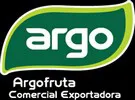The Brazilian Fruit Institute (IBRAF) invited all its affiliates to a business conference with four Russian companies in Sao Paulo, to address the embargo to Europe and the United States. "Russia is a market with which we have only dealt indirectly, but we are interested in entering it, as it is able to pay good prices," said Daniel Briso of Argofruta.
"The only problem is that we don't known how much of the fruit that Brazil sends to Europe (60 to 90 containers a week of lemons and 200 of mango) is diverted to Russia via European importers, and there is a logistical problem because the mango is quite sensitive and Russia is a very large country."
So far, Argofruta has already sent containers of mango to St. Petersburg, but only for spot businesses. Russia is mainly interested in the Tommy Atkins variety.
To facilitate business with the Russian market and avoid the risk of defaults, Argofruta makes use of credit insurance. Daniel stated that, "as long as the fruit arrives in good condition, the insurance pays 90% of the invoice in the event of default."
"This also prevents Russian importers from facing liquidity problems when they have to pay everything in advance. We only require the client to pay 90% in advance when the insurance doesn't accept them."
The company trades fruit from its own plantations and from associate producers. The mango operation is mainly located in Petrolina, where most of the Brazilian mangoes for export come from. According to Daniel, this is because "the climate of the area allows us to minimize the use of agrochemicals and get excellent fruit quality."
It's becoming increasingly important for the retail sector to establish direct relationships with suppliers. "In the past, sales were concentrated in food markets, but now the supermarkets, which are increasingly concentrated, look for suppliers with full traceability," says Daniel.
The most popular mango varieties in Brazil are the Tommy Atkins and Palmer varieties. The latter has no fibre, just like the Keitt and Kent varieties, and offers the advantage of being produced throughout the whole year, allowing customer loyalty.
"Last year, Brazil had exported nearly 1,000 containers by week 26, and nearly 3,000 containers in the second half of the year; this indicates that the strongest part of the campaign is in the second half of the year, especially between September and November."
"This year, the season is delayed. There was a small hole in August, but the European market is well supplied, as they also have fruit from Israeli and Africa," Daniel said.
The Brazilian industry is concerned about the market's reaction when the harvest from Spain, which has significant volumes, enters the European market between September and October, in conjunction with the mango from Brazil, "because Spain has the potential to becoming a significant competitor in the fibre-less mango market, which is the one that Europeans prefer," concludes Daniel Briso.

Daniel Briso
ARGOFRUTA
T:+55 11 5593 5900 +55 11 5593 5900
+55 11 5593 5900
M:+55 11 9811 9899 +55 11 9811 9899
+55 11 9811 9899
daniel@argofruta.com
www.argofruta.com


